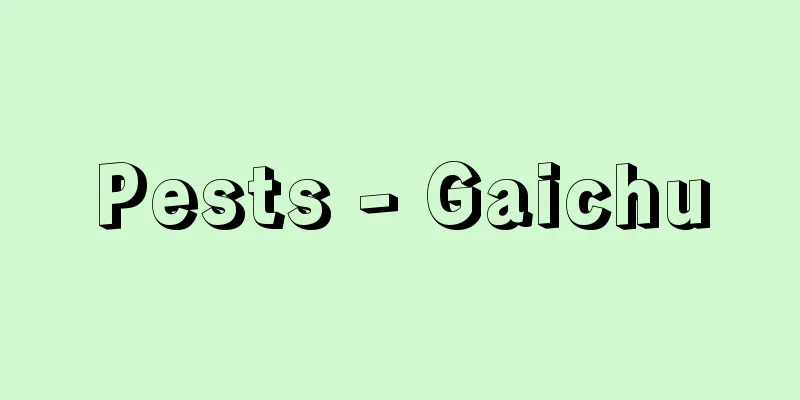《Strength and Weakness Theory》 - Kyojakuron

|
For example, in 1932, there were 858 cases of disturbance of public morals, while the number of cases of violation of peace and order was 5,037. Works that were banned include the editorial "Strength and Weakness" in the "Kanghu Newspaper" in May 1868, which became the target of hatred from the government army, leading to the banning of the paper and the imprisonment of Fukuchi Ochi, as well as many other works by Suehiro Tetsucho ("Tokyo Akebono Newspaper" August 1875), Shimazaki Toson ("Old Master" November 1902), Mori Ogai ("Vita Sexualis" July 1909), Ishikawa Jun ("Song of Mars" January 1928), and Ishikawa Tatsuzo ("Living Soldiers" March 1928) (it goes without saying that this was particularly common in the case of proletarian writers). The Peace Preservation Law, which was promulgated in April 1925, was revised in May 1928 and again in March 1941, but each revision strengthened thought control. … From the editorial:…In Japan, in 1867 (Keio 3), during the period of chaos following the Meiji Restoration by the Edo Shogunate, several newspapers were launched, including Yanagawa Shunzo's Chugai Shimbun and Fukuchi Ochi (Genichiro)'s Koko Shimbun, but most of them published reports and opinions from a pro-Shogunate perspective. Fukuchi's Kyojyakuron (Strength and Weakness Theory), which discussed the defeat of Satsuma and Choshu, violated the taboo of the new Meiji government, and the government arrested Fukuchi in 1868 (Meiji 1), marking the first case of a literary scandal. From this point on, the suppression of freedom of speech continued. … *Some of the terminology explanations that refer to "The Theory of Strength and Weakness" are listed below. Source | Heibonsha World Encyclopedia 2nd Edition | Information |
|
…たとえば32年には風俗壊乱858件に対し,安寧秩序違反5037件に上っている。発売禁止になった作品としては,1868年5月《江湖新聞》論説〈強弱論〉が官軍の憎むところとなり,同紙は発禁,福地桜痴が投獄された例をはじめ,末広鉄腸(《東京曙新聞》1875.8),島崎藤村(《旧主人》1902.11),森鷗外(《ヰタ・セクスアリス》1909.7),石川淳(《マルスの歌》1928.1),石川達三(《生きてゐる兵隊》1928.3)などの多くの作品がある(プロレタリア作家の場合その頻度がとくに高いことはいうまでもない)。また,1925年4月に公布された治安維持法は,28年5月,41年3月に改正されているが,改正のたびに思想統制は強化されていった。… 【社説】より…日本では1867年(慶応3),江戸幕府の大政奉還による混乱期に柳川春三の《中外新聞》,福地桜痴(源一郎)の《江湖新聞》など数種の新聞が創刊されたが,その大半は佐幕的な立場からの報道,主張を掲げた。とくに福地の〈強弱論〉は薩長の敗北を論じて,明治新政府の忌諱に触れ,政府は68年(明治1)福地を逮捕し,最初の筆禍事件となった。これ以後,言論弾圧が続くことになる。… ※「《強弱論》」について言及している用語解説の一部を掲載しています。 出典|株式会社平凡社世界大百科事典 第2版について | 情報 |
>>: Dynamic symbols - Dynamic symbols
Recommend
Aleksandr Ivanovich Gertsen
A leading Russian thinker and writer of the 19th ...
Kawaji Dam
...The Sanuki headworks in the middle reaches of ...
Dinaric Alps
A general term for the mountain range that runs fr...
Thumb - thumb
〘Noun〙① The finger on the hand or foot that is loc...
"Ume no Yoshibei" - Ume no Yoshibei
...3 acts, 8 scenes. Commonly known as Ume no Yuh...
Armistice Agreement - Armistice Agreement
...However, for individual violations, only punis...
National Commission for Science and Technology
...A policy field related to science and technolo...
Neolepisorus
…There are two types of aberrant plants, the horn...
Invisible Government
...However, in reality, it has been revealed that...
Self-examination - Jikendan
A private group that is not a public authority exe...
Taishan Fukun Festival
This is one of the festivals held by onmyoji (exor...
Bando Hikosaburo
Kabuki actor. The first generation was a famous a...
Subcutaneous emphysema - Hikakishu
Air enters the subcutaneous tissue, mainly due to ...
Commonwealth of Dominica
Official name: Commonwealth of Dominica Area: 750 ...
Uchiyama Basin
The basin is located in the lower reaches of the ...









